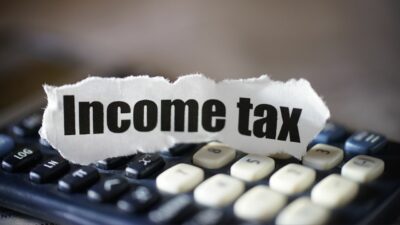Lori Ballen, the owner of this website, benefits from purchases made through her affiliate links.
Most home loan buyers tend to focus on their mortgage rate, as they often find the prospect of paying down the principal loan to be too daunting to give their full attention.
Although many homeowners are content to meet their mortgage contracts’ minimum payment obligations, others yearn for the day when they can own their home outright and struggle to find ways of paying down their debt sooner.
Here are five simple strategies to help you pay off your mortgage in record time.
1. Choose the Mortgage That’s Right for You
One of the most significant hurdles that homeowners face when paying down their mortgage comes from purchasing a home that is simply beyond their means and then finding themselves saddled with monthly payments that they cannot keep up with.
The essential step in tackling your home loan rapidly is to ensure that the home you purchase is within your budget.
Lenders often use what’s called a debt-to-income ratio (DTI) to determine whether a prospective borrower can meet the repayment obligations of the loan.
The DTI refers to comparing all monthly debt obligations to the borrower’s total monthly gross income. The standard DTI ratio used by the Federal Housing Administration (FHA) as a guideline for mortgage approval is 43%.
A person’s total monthly debt payments should not exceed 43% of their gross income.
If your goal is to pay down your mortgage more quickly, you should seek to purchase a home that will give you a mortgage rate of 35% DTI or less, thereby giving you the financial leverage to make additional payments on your mortgage.
Before embarking on your home buying search or consulting a real estate agent, it’s essential to ensure that you’re in the market for a type of home within your budget.
Buying a home is a big commitment, so you should take steps to make sure you’re financially ready. Make a checklist of financial goals that must be satisfied before you leap to becoming a homeowner.
If you already own your home and are absolutely set on eliminating your debt as rapidly as possible, you may consider the rather drastic step of downsizing your house.
Though it may not completely rid you of your mortgage payments outright, downsizing to a smaller home may provide you with sufficient profits to significantly reduce your principal loan balance, bringing the dream of debt-free homeownership far closer to reality.
2. Make the Right Down Payment
To reduce the principal balance on your mortgage and secure the most favorable terms in your mortgage contract, be prepared to make a down payment of about 20%.
This amount also serves as an effective benchmark of financial preparedness for the task of homeownership. Making a sizeable down payment demonstrates that you are capable of long-term saving and can bolster your loan application in the absence of a strong credit rating.
3. Prioritize the Principal
As part of your mortgage contract, a specific minimum payment is required each month. Set a goal of adding a small amount to these regular payments.
Many homeowners are often reluctant to pay the bank over their minimum mortgage obligations, regarding those additional funds as being better spent elsewhere.
In the short term, making only the minimum payments may seem like a sound approach, allowing you to allocate funds to other living expenses or investment opportunities.
Still, you will ultimately be paying the bank more, as the longer the principal loan remains outstanding, the more interest will accrue on the loan.
Adding additional amounts to your mortgage payments can therefore be regarded as a sound low-risk investment, equivalent to investing in a bond or GIC, but with the added satisfaction of knowing that you will become a debt-free homeowner much sooner.
4. Anticipate Future Maintenance Costs
Maintenance and utility costs can eat into a significant portion of your housing budget if you’re not prepared.
This is especially the case if you’re purchasing an older home that may already have maintenance issues from the time of purchase.
When calculating the actual cost of home maintenance, a general rule of thumb is to set aside 1% of the home’s total value every year to cover repair and replacement costs.
This amount will fluctuate depending on several factors, such as the age of the home and several climatic factors such as average temperature, humidity, and annual rain or snowfall.
Market fluctuations may also distort the home’s true value, forcing homeowners to reevaluate their expected maintenance budget.
A home purchased at the peak of a housing bubble will have lower projected repair costs over the long term than one purchased at the bottom. However, materials and contractor fees tend to track pretty closely with the real estate market.
Even if you do not spend your anticipated maintenance budget in a given year, that amount should still be set aside for future repair costs, as a large-scale replacement for structural components such as roofs, plumbing, or wiring may eat up several years’ worth of your maintenance budget.
5. Make Small Sacrifices
Now that you have committed to purchasing a home, your goal is to find as many ways to help you get rid of that debt as possible.
A small dose of deferred gratification can go a long way to making your mortgage-free dreams a reality. To that end, consider packing a lunch for work rather than eating out or trading in that gas-guzzling SUV for a more fuel-efficient compact sedan.
You can find many creative ways to shave costs from other living expenses, allowing you to contribute just a little more to each mortgage payment.
In the case of a $250,000, 30-year fixed-rate mortgage, adding just $100 a month to your regular payments would save you over $26,000 in interest payments.
Paying off your mortgage may seem like an overwhelming task at first. Many homeowners are tempted to make do with the minimum payments and put the prospect of debt-free homeownership in the back of their minds.
But having a place that you can truly call your own in less time makes all the extra planning and sacrifices worthwhile.
Recent Posts
- Exploring the 13 Best French Restaurants in Las Vegas: A Gourmet’s Guide
- The Witch House Escape Room Review: A Bewitching Adventure That Starts at the Door 🧙♀️🎉
- Top 10 Tips: What NOT to Fix When Selling a House
- How to Sell a House Fast: Expert Tips for a Quick Sale
- Exploring Container Park Las Vegas – Shopping, Dining, and Live Music





